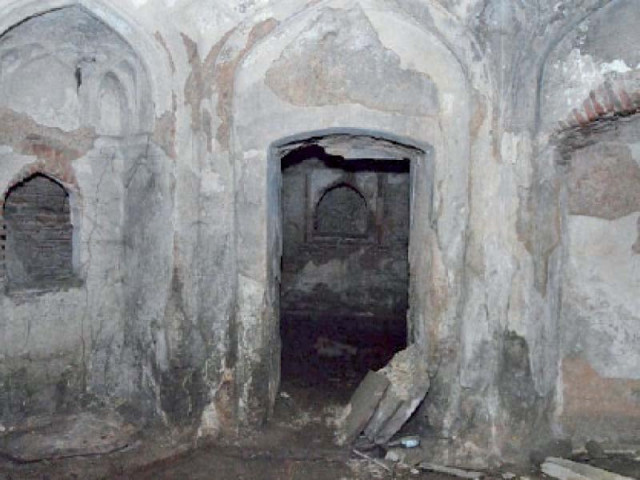Punjab plans to restore Shahi Qila
WCLA submits Rs1.45b project to Punjab govt

PHOTO: EXPRESS
Walled City of Lahore Authority (WCLA) Conservation Director Najamul Saqib told The Express Tribune that work is being done to restore various parts of the fort and to develop tourists’ interest.
“However, there are many dungeons, tunnels and other places in the Shahi Qila that need to be discovered,” he said. “During the last few years, some dungeons have been discovered under the Black Pavilion and Sheesh Mahal, as well as in a part of the Royal Kitchen. Moreover, four floors below the structure have been discovered,” the director added.
He maintained that the WCLA has prepared a project of Rs1.45 billion to restore Emperor Jahangir's bedroom and the dungeons, while secret places under the Sheesh Mahal will be explored, which would likely reveal torture chambers where rulers imprisoned dangerous prisoners and their enemies.
Saqib maintained that the public hall and the old Akbari Gate will also be restored to their original form.
A museum and narration centre will also be established in the fort. The WCLA has prepared the PC-I and sent it to the Punjab government for approval.
Reportedly, the funds are expected to be released in October after the approval of PC-I and then the paperwork will begin, but the restoration work will begin next year.
Saqib added that the royal baths were discovered some time ago under rubble and debris. “Not only did we continue the excavation on its sides, but also called national and foreign experts to ascertain the historical status of these unearthed baths,” he said.
During the excavation, several interconnected passages and corridors were discovered, which are thought to be passing through the royal family room. Similarly, some pots have been found and investigations are underway to find out which period these vessels were used in.
Archaeological Department’s former director Afzal Khan said the excavation in front of the public hall took place with the collaboration of international experts in 1959. “During this time, we have found traces of 13 different eras, which means there were 13 different periods of construction,” he said.
Khan highlighted that because the fort was built on a mound, as time passed the original artifacts were buried in the sand and new construction continued.
“Even today, if any part of the fort is excavated, some artifacts will be discovered under it,” said the former director.
He also made it clear that no secret tunnels have been discovered in Shahi Qila to date. “There were underground rooms along the walls and corridors which connect the buildings built in different parts of the fort,” he remarked.
“People used to spread rumours that there were secret tunnels which led out of the fort,” said Khan. He concluded that some claimed that the tunnels went up to Delhi, but all these were myths that had nothing to do with reality.
Published in The Express Tribune, April 28th, 2020.



















COMMENTS
Comments are moderated and generally will be posted if they are on-topic and not abusive.
For more information, please see our Comments FAQ